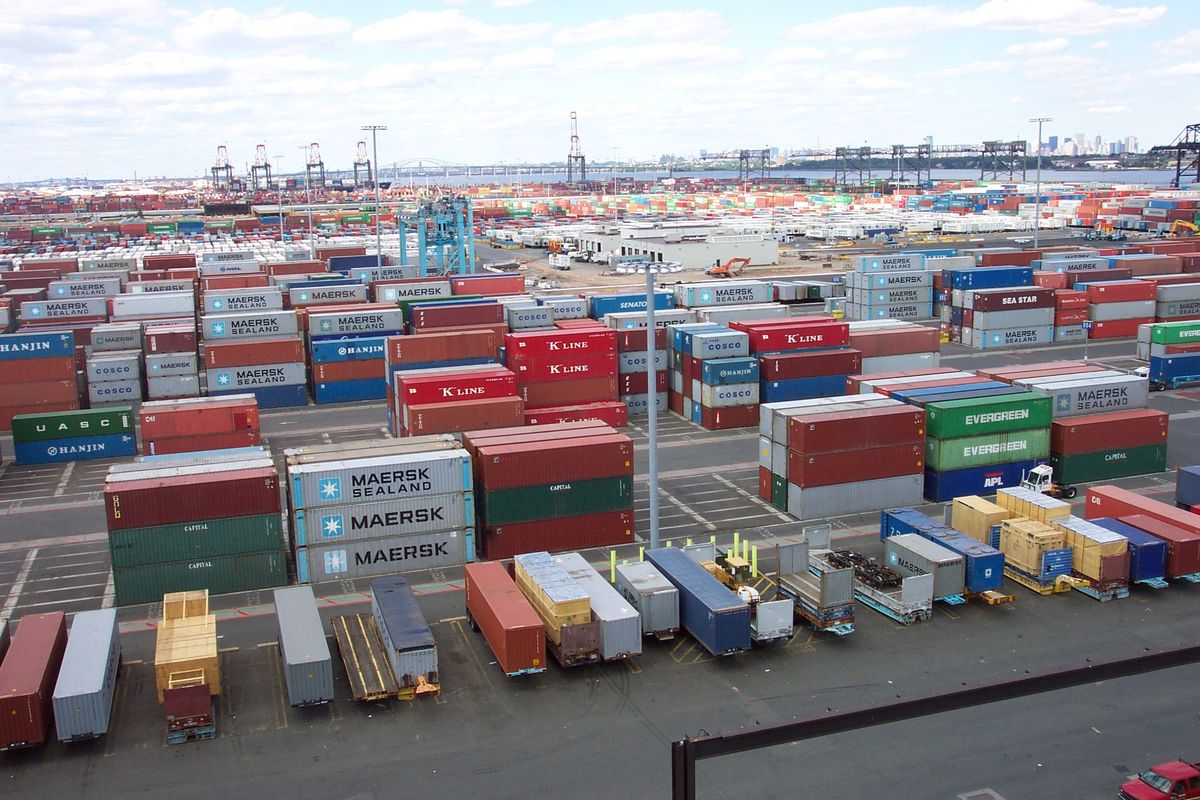In the intricate world of international shipping, late payments can pose significant challenges to logistics firms, disrupting cash flows and complicating financial planning. Understanding the root causes of these delays is crucial for developing effective strategies to mitigate them. This guide delves into the complexities that lead to late payments in international shipping and offers actionable solutions for logistic firms to enhance their payment processes, adopt effective invoicing practices, leverage trade finance instruments, and navigate the legal and regulatory landscape. By implementing these measures, businesses can improve their financial resilience and maintain healthy relationships with international partners.
Key Takeaways
- Identifying the multifaceted causes of late payments in international shipping is the first step toward developing targeted solutions.
- Strategic enhancements in payment processes and the adoption of fintech can significantly reduce the incidence of payment delays.
- Effective invoicing practices, including the use of e-invoicing and invoice financing, are critical for timely payment collection.
- International trade finance instruments such as letters of credit and trade credit insurance offer security against payment risks.
- A firm grasp of international trade laws and regulatory measures is essential for logistic firms to enforce contracts and ensure compliance.
Understanding the Causes of Late Payments in International Shipping
Complexities of Cross-Border Transactions
We navigate a labyrinth of regulations and procedures when dealing with international shipping payments. Diverse customs protocols and tax systems add layers of complexity, making each transaction unique.
- Understanding local laws
- Adapting to different banking systems
- Managing logistical hurdles
These are just the tip of the iceberg. We must also consider the cultural nuances that influence business practices abroad.
Our goal is to streamline these complexities, ensuring payments flow as smoothly as our goods across borders.
Inadequate Payment Infrastructure
We’re often hamstrung by outdated payment systems. Delays are inevitable when infrastructure can’t keep pace with the speed of global trade. It’s not just about slow transfers; it’s about the lack of integration and automation that modern logistics demand.
Visibility is key. Without it, tracking payments becomes a guessing game. We need systems that provide real-time updates and seamless communication between parties. Here’s what we’re up against:
- Fragmented banking networks
- Limited access to digital payment platforms
- Inefficient manual processes
- Poor interoperability between financial institutions
We must prioritize upgrading our payment infrastructure to match the scale and complexity of international shipping.
By addressing these issues, we pave the way for smoother transactions. It’s a critical step in managing late payments and enhancing our overall efficiency.
Currency Fluctuations and Exchange Rates
We’re all too familiar with the volatility of the foreign exchange market. Currency fluctuations can significantly impact the bottom line when dealing with international transactions. One day, you’re ahead; the next, you’re scrambling to cover unexpected costs.
To mitigate these risks, we employ hedging strategies. By locking in exchange rates or using forward contracts, we protect ourselves against adverse movements. It’s not just about defense, though; savvy firms capitalize on favorable shifts to enhance profitability.
It’s crucial to stay informed and agile, adapting to market changes swiftly to prevent payment delays.
Here’s a quick glance at how exchange rates can affect payment terms:
- Invoice date: The exchange rate can change between the invoice date and the payment date.
- Payment due date: Fluctuations can either increase or decrease the amount owed by the time payment is due.
- Settlement date: The actual conversion rate on the settlement date determines the final amount paid or received.
Regulatory Compliance and Bureaucracy
We navigate a maze of regulations that often slow down payment processes. Compliance is not just a checkbox; it’s a complex puzzle of local and international laws. Each country’s unique requirements can lead to inadvertent delays and increased costs.
Regulatory hurdles are not insurmountable. We prioritize understanding these challenges to mitigate risks and avoid penalties. Our approach includes staying updated with the latest regulatory changes and adapting our processes accordingly.
- Educate our team on compliance requirements
- Regularly update internal policies
- Engage with local experts in key markets
We’re committed to overcoming bureaucracy for smoother transactions.
Late payments disrupt logistics operations, strain supplier relationships, have legal implications, raise data privacy concerns, and pose technological barriers in payment processing for third-party logistics providers.
Strategies for Mitigating Payment Delays
Streamlining Payment Processes
In our quest to minimize payment delays, we’ve honed in on a trifecta of strategies: streamlining documentation processes, implementing automated payment systems, and enhancing communication channels. These are the pillars that support efficient cash flow management in the logistics and transportation industry.
- Streamline documentation: Cut through the red tape with simplified paperwork.
- Automate payments: Shift to systems that process transactions swiftly and accurately.
- Enhance communication: Keep all parties in the loop to avoid misunderstandings and delays.
By refining these processes, we not only expedite payments but also reinforce the trust our clients place in us. It’s about creating a seamless financial ecosystem that benefits all stakeholders involved.
Leveraging Financial Technology Solutions
In our quest to tackle late payments, we’ve turned to the cutting-edge world of financial technology. Fintech solutions are revolutionizing how we manage transactions, offering speed and efficiency previously unattainable. We’re not just talking about faster payments; we’re addressing the very fabric of financial interactions in international shipping.
- Digital payment platforms reduce transfer times.
- Blockchain technology ensures transparency and security.
- Smart contracts automate and enforce payment terms.
By integrating fintech, we’re not only streamlining our processes but also embedding trust into every transaction.
We recognize that technology alone isn’t a silver bullet. It’s a tool that, when combined with a deep understanding of the root causes of delays and a commitment to fostering strong relationships, can significantly mitigate the risk of late payments. Whether it’s air cargo or trucking and haulage, our strategies are tailored to the unique challenges of each sector.
Establishing Clear Payment Terms
We know the drill: clear payment terms prevent confusion and disputes. Setting explicit terms is our first line of defense against late payments. It’s about being upfront with our clients, detailing when and how payments should be made.
- Define payment deadlines
- Specify accepted payment methods
- Include late payment penalties
By aligning expectations, we safeguard our cash flow and maintain a steady revenue stream. Clear terms are not just courteous; they’re crucial for a smooth operation.
Building Strong Relationships with Clients
We know that trust is the cornerstone of any successful business partnership. Strong relationships with clients go beyond transactions; they’re about understanding needs, providing value, and ensuring reliability. By engaging with our clients regularly, we create a rapport that fosters mutual respect and long-term collaboration.
Communication is key. We keep our clients informed about the status of their shipments and payments. This transparency builds confidence and reduces the likelihood of misunderstandings that could lead to payment delays.
- Regular check-ins
- Transparent communication
- Shared goals and expectations
By prioritizing our clients’ experience, we not only expedite payments but also pave the way for future business opportunities.
Our commitment to client relationships is reflected in our approach to tackling financial challenges. We employ strategies that are sensitive to the nuances of maritime shipping, logistics, air cargo, and trucking industries. Our focus on debt recovery, payment delays, and default payments is unwavering, ensuring that we stay ahead of potential issues.
Implementing Effective Invoicing Practices
Accurate and Timely Invoice Generation
We recognize that timely billing is the backbone of our cash flow. Invoices must be dispatched without delay, immediately after goods are shipped or services are rendered. This ensures a predictable revenue stream and helps avoid the cash crunch that late payments can cause.
Accuracy in invoicing is just as crucial. Every invoice should reflect the correct amounts, terms, and details of the transaction. Mistakes can lead to disputes, which in turn delay payments even further. We adhere strictly to the principle that every figure and fact on the invoice must be double-checked for precision.
Ensuring compliance with international trade regulations is not just about legality; it’s about maintaining the integrity of our financial operations.
To streamline this process, we’ve implemented a series of steps:
- Establish a standardized invoicing protocol.
- Train staff on the importance of accurate data entry.
- Utilize software that automatically populates invoices with the correct transaction details.
- Conduct regular audits to ensure compliance with invoicing standards.
Utilizing Electronic Invoicing Systems
We’re embracing the digital shift with electronic invoicing systems. These platforms are not just about going paperless; they’re a cornerstone for efficiency in our billing processes. Automated invoice generation ensures accuracy and speed, cutting down the time between job completion and payment request.
- Reduction in errors: Electronic systems minimize manual entry mistakes.
- Faster processing: Instant delivery to clients means quicker turnaround.
- Easy tracking: Real-time status updates on sent and received invoices.
- Enhanced security: Digital encryption protects sensitive data.
By integrating electronic invoicing, we’re not only streamlining operations but also reinforcing our commitment to sustainability. This proactive approach is crucial in addressing the challenges of unsettled invoices in logistics, ensuring effective communication with suppliers and robust invoice verification processes.
Our goal is to set a new standard in the industry, where late payments become a relic of the past. With preventive measures in place, we’re poised to tackle any discrepancies head-on, maintaining a smooth financial workflow.
Invoice Factoring and Financing Options
We turn to invoice factoring and financing as strategic levers to manage cash flow and mitigate the risks of late payments. Boldly navigating through cash constraints, we sell our accounts receivable at a discount to a third party. This immediate injection of cash bolsters our financial stability.
- Assess the creditworthiness of clients
- Negotiate factoring terms with transparency
- Choose recourse or non-recourse factoring based on risk appetite
By leveraging these financing options, we maintain a steady cash flow, ensuring that our operations run smoothly without the hiccups of payment delays.
It’s crucial to integrate these options into our broader financial strategy, aligning them with other measures like credit control and proactive financial planning. This holistic approach is key to managing outstanding invoices effectively.
Dispute Resolution Mechanisms
In the maze of international shipping, disputes are inevitable. We prioritize clear mechanisms to resolve them swiftly. Timely resolution is key to maintaining cash flow and client trust.
Communication is our first tool in dispute resolution. We ensure all parties have a shared understanding of the issues at hand. Our step-by-step approach includes:
- Acknowledging the dispute promptly
- Gathering all relevant documentation
- Engaging in open dialogue with stakeholders
- Seeking mediation if necessary
We believe in a proactive stance—addressing issues before they escalate. Our dedicated team works tirelessly to find common ground and fair solutions.
When disputes do arise, we’re prepared with a robust system. It’s designed to minimize disruption and protect our relationships. After all, our reputation hinges on how effectively we navigate these challenges.
Leveraging International Trade Finance Instruments
Letters of Credit and Their Role
In our quest to secure transactions, we turn to letters of credit (LCs). They stand as a guarantee from the buyer’s bank, promising payment upon delivery of goods as per agreed terms. This financial instrument is pivotal in mitigating risks associated with international trade.
- LCs ensure that all parties are clear on the payment conditions.
- They provide a safety net for sellers against non-payment.
- Buyers are assured that payment is only made when shipment terms are met.
By emphasizing advance payments and effective communication, we build trust and ensure financial security in our operations.
LCs are not just about security; they’re about building a foundation of trust. With every successful transaction, our reputation as a reliable partner grows stronger.
Bank Guarantees and Performance Bonds
In our quest to secure transactions, we often turn to bank guarantees and performance bonds as our safety nets. These instruments assure our clients of our commitment to fulfilling contractual obligations. They act as a promise from a bank, ensuring payment in case of non-fulfillment.
- Bank guarantees mitigate the risk of non-payment, providing a layer of security for both parties involved.
- Performance bonds, on the other hand, ensure the completion of a project or shipment as per the terms agreed upon.
By integrating these tools into our risk management strategies, we shield our operations from the financial impact of defaults.
Contracts are strategic tools in international trade, emphasizing clear payment terms, dispute resolution, and legal clauses. Insurance and guarantees provide protection against non-payment risks, requiring careful evaluation and integration into our risk management strategies.
Trade Credit Insurance
We mitigate risks in international shipping by embracing trade credit insurance. This safeguard protects us against the non-payment of commercial debt. It ensures that our cash flow remains stable, even if a buyer defaults.
Buyers’ creditworthiness is crucial. We assess it before entering into agreements, but unforeseen circumstances can still lead to payment defaults. Trade credit insurance provides a safety net, allowing us to recover a portion of the outstanding debt.
- Assess buyers’ creditworthiness
- Secure a trade credit insurance policy
- Maintain stable cash flow
- Recover debts in case of buyer default
By transferring the risk of buyer default to an insurer, we focus on growing our business without the constant worry of unpaid invoices.
Supply Chain Finance and Reverse Factoring
In the intricate dance of international shipping, supply chain finance and reverse factoring emerge as pivotal moves. We unlock liquidity, turning invoices into immediate cash flow. Boldly, we bridge the gap between delivery and payment, ensuring suppliers breathe easier with accelerated receivables.
- Identify creditworthy buyers
- Partner with financial institutions
- Convert invoices into cash
By leveraging these tools, we not only stabilize our cash flow but also fortify the supply chain against disruptions.
With reverse factoring, we’re not just waiting for payments; we’re proactively managing our financial health. It’s a strategic play that benefits all parties involved, from supplier to buyer.
Adopting Legal and Regulatory Measures
Understanding International Trade Laws
We navigate the complex web of international trade laws to safeguard our transactions. Knowledge is power, and understanding the legal landscape is crucial for preventing payment delays. We prioritize staying abreast of the latest regulations to ensure compliance and smooth operations.
- Familiarize with international trade agreements
- Comprehend export and import laws
- Recognize intellectual property rights
- Grasp anti-dumping and countervailing duties
By mastering international trade laws, we mitigate risks and reinforce our legal standing in case of disputes.
Adherence to these laws not only protects us from legal pitfalls but also builds trust with our partners. It’s a strategic shield against the uncertainties of global trade.
Enforcing Contracts and Legal Recourse
We stand firm on our commitments and expect the same from our partners. Enforcing contracts is not just about legalities; it’s about maintaining the integrity of our business relationships. When payment delays occur, we take a structured approach to legal recourse, ensuring that our rights and financial interests are protected.
Legal recourse is a necessary tool in our arsenal. We prioritize amicable solutions, but we’re prepared to take decisive action when needed. Our steps include:
- Issuing formal notices and reminders
- Engaging in mediation or arbitration
- Pursuing litigation as a last resort
We believe in fair play and the rule of law. Our approach to enforcing contracts is designed to deter late payments and uphold the terms agreed upon.
By taking these measures, we safeguard our operations and send a clear message: late payments will not be tolerated. We’re committed to resolving disputes efficiently, minimizing disruptions to our cash flow and operations.
Navigating Through Anti-Money Laundering Regulations
In our quest to solve late payments, we must not overlook the stringent anti-money laundering (AML) regulations that impact international transactions. Ensuring compliance with these regulations is not just about avoiding penalties; it’s about maintaining the integrity of our financial systems.
- Understand the AML framework relevant to your operations.
- Conduct due diligence on all parties involved in the transaction.
- Keep meticulous records of all international payments and transactions.
- Train staff regularly on AML procedures and updates.
By staying vigilant and informed, we can navigate AML regulations effectively, minimizing the risk of delayed payments due to compliance issues.
It’s crucial to integrate AML checks into our payment processes without causing undue friction. This delicate balance is key to facilitating smooth transactions while adhering to legal obligations.
Compliance with International Sanctions
In our global operations, we must navigate the treacherous waters of international sanctions. Adherence to these regulations is not just about legal compliance; it’s about maintaining the integrity of our business. We prioritize a thorough understanding of the sanctions landscape, which varies by country and can change rapidly.
Sanctions can significantly impact payment processes, and we’re proactive in our approach to manage these risks. Here’s how we stay compliant:
- Regularly updating our sanctions lists and screening processes
- Training our staff on the latest sanction regulations
- Conducting due diligence on all parties in the shipping chain
By staying ahead of the curve, we ensure that our transactions are not only compliant but also efficient, avoiding costly delays and penalties.
Our commitment to compliance is unwavering. We understand that sanctions are a critical aspect of international trade, and we’re dedicated to upholding these standards to protect our operations and reputation.
Navigating the complexities of debt collection requires a partner who is not only experienced but also well-versed in the legal and regulatory measures that govern the industry. At Debt Collectors International, we offer specialized solutions tailored to your industry’s needs, ensuring compliance and maximizing recovery. Don’t let outstanding debts disrupt your business operations. Visit our website to learn more about our services and take the first step towards reclaiming what is rightfully yours. Our expert team is ready to serve you with unparalleled results and performance.
Frequently Asked Questions
What are the main causes of late payments in international shipping?
Late payments in international shipping can be attributed to complexities of cross-border transactions, inadequate payment infrastructure, currency fluctuations and exchange rates, and regulatory compliance and bureaucracy.
How can logistic firms streamline their payment processes to mitigate delays?
Logistic firms can mitigate payment delays by automating and simplifying their payment processes, adopting electronic payment systems, and ensuring clear communication and payment terms with clients.
What role does financial technology play in reducing payment delays in international shipping?
Financial technology solutions can play a significant role in reducing payment delays by providing more efficient, secure, and transparent payment and transaction processing, which is particularly beneficial in the context of cross-border trade.
What are some effective invoicing practices to prevent late payments?
Effective invoicing practices include generating accurate and timely invoices, utilizing electronic invoicing systems to expedite the process, offering invoice factoring and financing options, and having clear dispute resolution mechanisms in place.
How can international trade finance instruments help in solving late payments?
International trade finance instruments such as letters of credit, bank guarantees, performance bonds, trade credit insurance, and supply chain finance can provide security and assurance of payment, thus reducing the risk of late payments.
What legal and regulatory measures can logistic firms adopt to ensure timely payments?
Logistic firms can ensure timely payments by understanding and complying with international trade laws, enforcing contracts effectively, navigating anti-money laundering regulations, and adhering to international sanctions, which can all contribute to a more predictable and secure payment environment.





